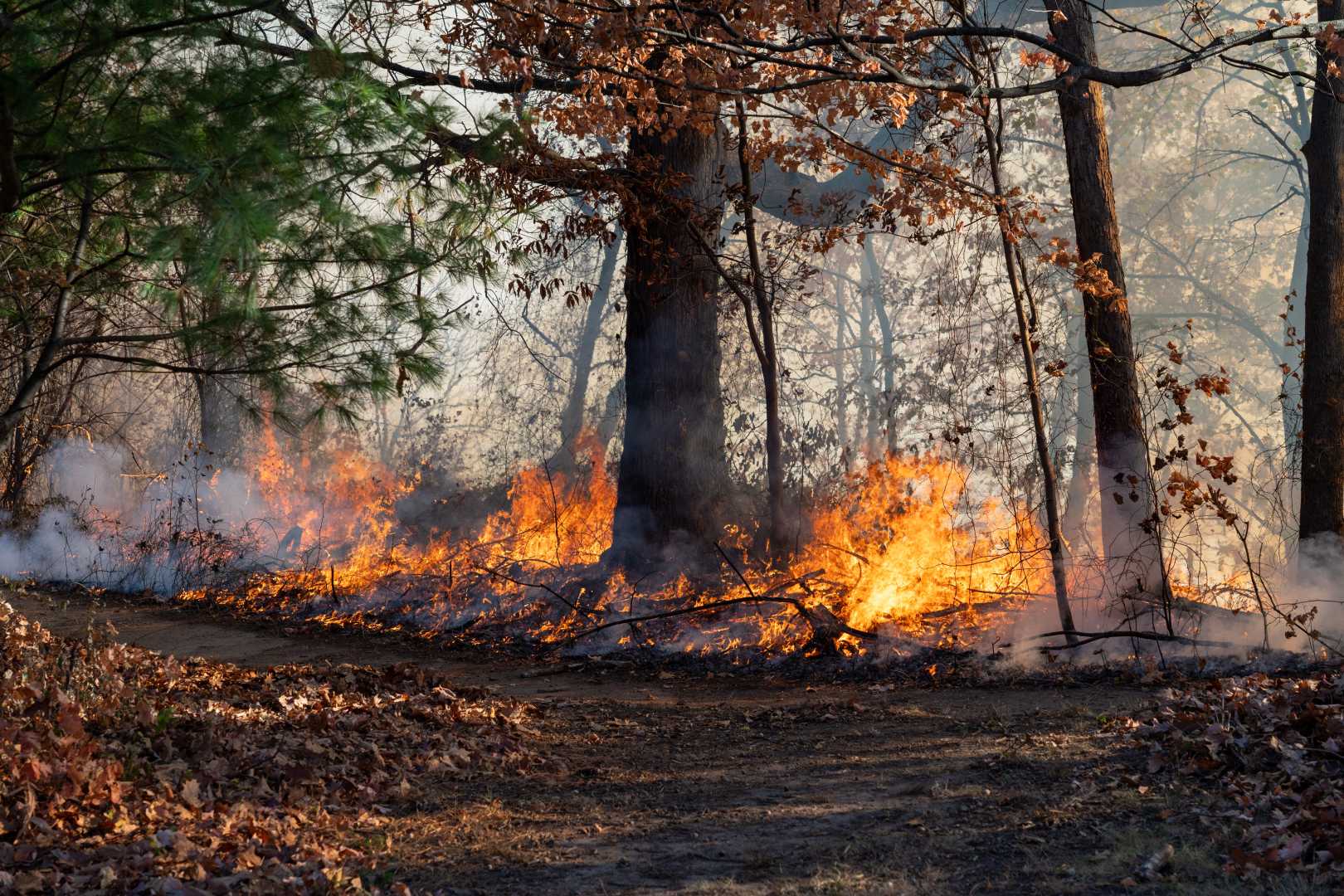News
Multiple Wildfires Rage Across New Jersey Amid Severe Dry Conditions

New Jersey is grappling with multiple wildfires that have been exacerbated by the state’s severe dry conditions. As of Friday, at least four major wildfires were burning across the state, stretching from the Pinelands in the central and western parts to the New York City suburbs.
The latest fire broke out along the Palisades Interstate Parkway in Englewood Cliffs, Bergen County, across the Hudson River from New York. This fire, though smaller than the others, had burned about 19 acres and was 30% contained as of Friday morning. No homes were threatened by this fire, and the highway remained open, although Henry Hudson Drive was closed.
Other significant fires include the Shotgun Wildfire in Jackson Township, Ocean County, which had burned about 350 acres and was 80% contained by Friday. The Bethany Run Wildfire, along the border of Burlington and Camden counties, had consumed around 360 acres and was 75% contained, threatening up to 104 structures. The Pheasant Run Wildfire in the Glassboro Wildlife Management Area in Gloucester County had burned about 133 acres and was 50% contained, with no structures threatened.
The hazardous fire conditions were compounded by a red flag warning issued by the National Weather Service, citing gusty winds and low humidity that could help spread fires quickly. New Jersey has not received measurable precipitation in over a month, setting a new record and contributing to the extreme dryness.
A new wildfire also emerged on Saturday morning near Cannonball Road in Pompton Lakes, Passaic County, burning 75 acres and threatening 55 structures. However, no evacuations were ordered at the time.
The ongoing dry spell and frequent wildfires have been particularly taxing for firefighters, who have been working long hours with little rest. Bill Donnelly, the state forest fire warden and chief of the New Jersey Forest Fire Service, noted that October was the busiest month on record for the forest service due to the dry conditions.












